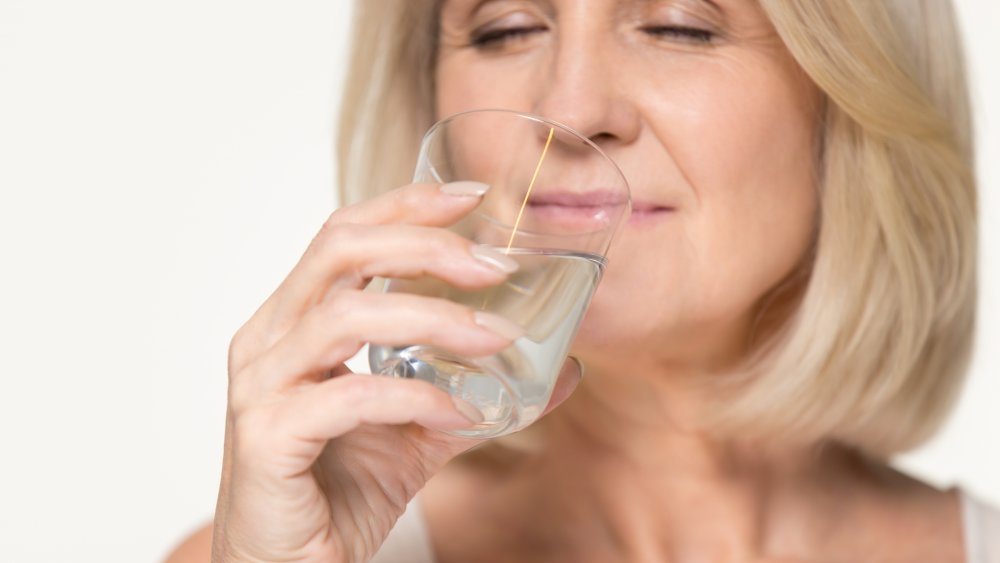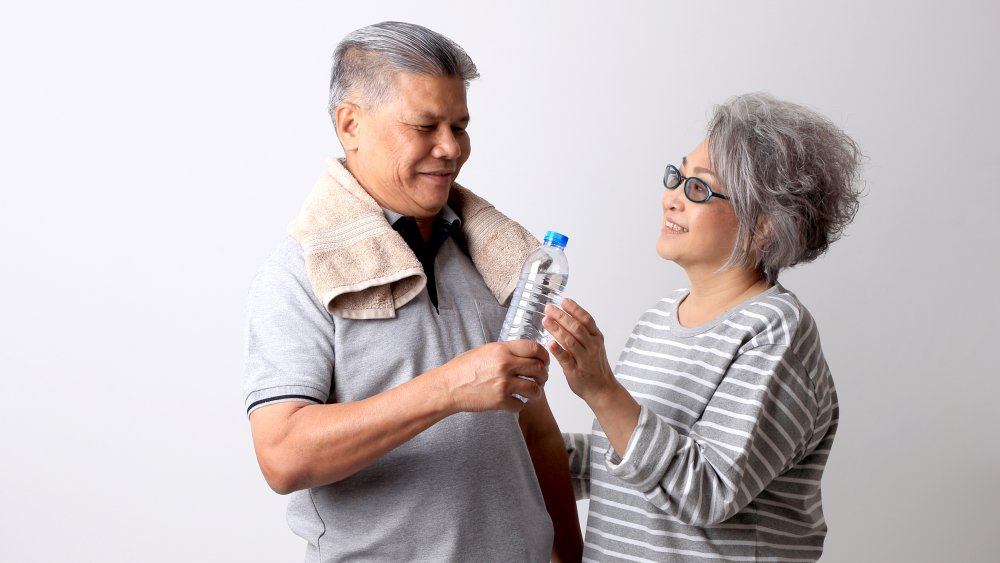The Real Reason You Should Drink More Water As You Age
While you may not need to drink eight glasses of plain water every day, you do know (well, you should know!) the importance of staying well-hydrated. Slacking off on the hydration is likely to bring about digestive difficulties, fatigue, illness, infection, aches, pains, and a whole bunch of other bad stuff. What you may not be aware of, however, is that your hydration needs change over time.
According to Healthline, if you continue to consume the same levels of fluid as you grow older, you may well find yourself becoming more easily dehydrated because, as with so many other things that happen as you grow older, even water just doesn't work like it used to. In other words, if one bottle of water used to quench your thirst after strenuous exercise, you may now, as, ahem, a slightly-less-youthful-than-you-used-to-be person, need to up your fluid intake to two glasses for your body to see the same results.
Why age-related dehydration is a problem
A recent study published in The Journal of Physiology (via The Physiological Society) showed that older bodies are less able to regulate their temperature when subject to physical stress such as exercise. In younger people, the body is evidently able to detect the onset of dehydration and reduce the amount of sweating to help compensate, but older ones are less able to do so, and more sweat leads to more dehydration leads to greater strain on the heart, kidneys, and other organs.
Dr. Nodar Janas, medical director of NYC's Upper East Side Rehabilitation and Nursing Center, told Healthline that this isn't the only risk factor for dehydration in older people: "As we get older, our thirst center... isn't as active as it used to be, so the brain doesn't always give the signal that we need to drink." Dr. Nadal also pointed out that older people seem to have less tolerance for cold and could tend to bundle up more, but the concern with that being "sometimes too warm of an environment can lead to excessive perspiration without realizing you're dehydrated."
Whether or not you consider yourself an "older person" at this stage, it's easier to form good habits sooner rather than later. Even if you don't feel thirsty, it couldn't hurt you to try to increase your fluid intake bit by bit, so you need not ever be concerned by age-related dehydration — no matter how many 29th birthdays you've had.


